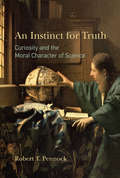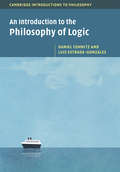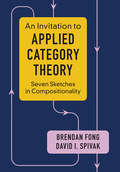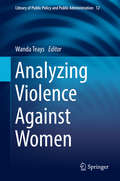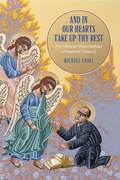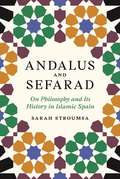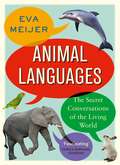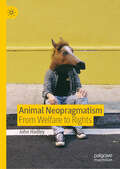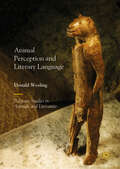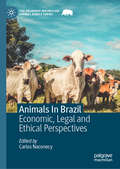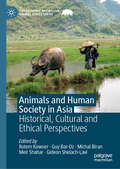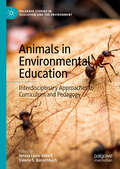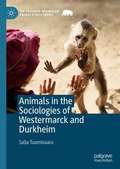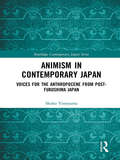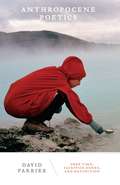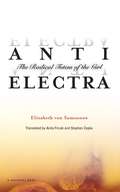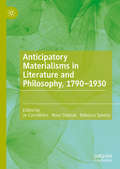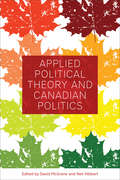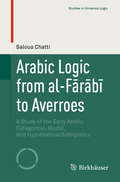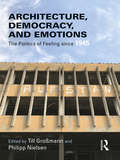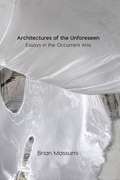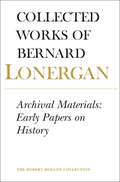- Table View
- List View
An Instinct for Truth: Curiosity and the Moral Character of Science (The\mit Press Ser.)
by Robert T. PennockAn exploration of the scientific mindset—such character virtues as curiosity, veracity, attentiveness, and humility to evidence—and its importance for science, democracy, and human flourishing.Exemplary scientists have a characteristic way of viewing the world and their work: their mindset and methods all aim at discovering truths about nature. In An Instinct for Truth, Robert Pennock explores this scientific mindset and argues that what Charles Darwin called “an instinct for truth, knowledge, and discovery” has a tacit moral structure—that it is important not only for scientific excellence and integrity but also for democracy and human flourishing. In an era of “post-truth,” the scientific drive to discover empirical truths has a special value.Taking a virtue-theoretic perspective, Pennock explores curiosity, veracity, skepticism, humility to evidence, and other scientific virtues and vices. He explains that curiosity is the most distinctive element of the scientific character, by which other norms are shaped; discusses the passionate nature of scientific attentiveness; and calls for science education not only to teach scientific findings and methods but also to nurture the scientific mindset and its core values.Drawing on historical sources as well as a sociological study of more than a thousand scientists, Pennock's philosophical account is grounded in values that scientists themselves recognize they should aspire to. Pennock argues that epistemic and ethical values are normatively interconnected, and that for science and society to flourish, we need not just a philosophy of science, but a philosophy of the scientist.
An Introduction to the Philosophy of Logic (Cambridge Introductions to Philosophy)
by Daniel Cohnitz Luis Estrada-GonzálezPhilosophy of logic is a fundamental part of philosophical study, and one which is increasingly recognized as being immensely important in relation to many issues in metaphysics, metametaphysics, epistemology, philosophy of mathematics, and philosophy of language. This textbook provides a comprehensive and accessible introduction to topics including the objectivity of logical inference rules and its relevance in discussions of epistemological relativism, the revived interest in logical pluralism, the question of logic's metaphysical neutrality, and the demarcation between logic and mathematics. Chapters in the book cover the state of the art in contemporary philosophy of logic, and allow students to understand the philosophical relevance of these debates without having to contend with complex technical arguments. This will be a major new resource for students working on logic, as well as for readers seeking a better understanding of philosophy of logic in its wider context.
An Invitation to Applied Category Theory: Seven Sketches in Compositionality
by David I. Spivak Brendan FongCategory theory is unmatched in its ability to organize and layer abstractions and to find commonalities between structures of all sorts. No longer the exclusive preserve of pure mathematicians, it is now proving itself to be a powerful tool in science, informatics, and industry. By facilitating communication between communities and building rigorous bridges between disparate worlds, applied category theory has the potential to be a major organizing force. This book offers a self-contained tour of applied category theory. Each chapter follows a single thread motivated by a real-world application and discussed with category-theoretic tools. We see data migration as an adjoint functor, electrical circuits in terms of monoidal categories and operads, and collaborative design via enriched profunctors. All the relevant category theory, from simple to sophisticated, is introduced in an accessible way with many examples and exercises, making this an ideal guide even for those without experience of university-level mathematics.
An Invitation to Model Theory
by Jonathan KirbyModel theory begins with an audacious idea: to consider statements about mathematical structures as mathematical objects of study in their own right. While inherently important as a tool of mathematical logic, it also enjoys connections to and applications in diverse branches of mathematics, including algebra, number theory and analysis. Despite this, traditional introductions to model theory assume a graduate-level background of the reader. In this innovative textbook, Jonathan Kirby brings model theory to an undergraduate audience. The highlights of basic model theory are illustrated through examples from specific structures familiar from undergraduate mathematics, paying particular attention to definable sets throughout. With numerous exercises of varying difficulty, this is an accessible introduction to model theory and its place in mathematics.
Analyzing Violence Against Women (Library of Public Policy and Public Administration #12)
by Wanda TeaysThis timely anthology brings into sharp relief the extent of violence against women. Its range is global and far reaching in terms of the number of victims. There are deeply entrenched values that need to be rooted out and laid bare.This text offers a philosophical analysis of the problem, with important insights from the various contributors. Topics range from sexual assault to media violence, prostitution and pornography, domestic violence, and sexual harassment. Each of the four parts include essays which tackle these issues and provide us with tools for bringing about change.The philosophical approaches to the topic give readers insight into the harms of interpersonal violence and its impact on the lives of its victims. Analyzing Violence Against Women calls us to examine public policies and work for systemic change. In the process, we are reminded that the concerns of the discipline of Philosophy encompasses issues with a wider scope.Students will especially benefit from seeing how the various authors grapple with this pressing issue and clarify why we need to bring about change.
And in Our Hearts Take Up Thy Rest: The Trinitarian Pneumatology of Frederick Crowe, SJ (Lonergan Studies)
by Michael EadesIn his seminary classes and his writings, Frederick Crowe, SJ (1915–2012) sought to understand anew the eternal identity of the Holy Spirit and the Spirit’s role in the Church’s life. Despite Crowe’s fame as a professor of Trinitarian theology and his groundbreaking work on Thomas Aquinas’ doctrine of complacent love as an analogy for the Holy Spirit’s eternal procession, no book has ever been published on this influential Canadian Jesuit, who set up centres around the world for the study of the thought of Bernard Lonergan, SJ (1904–84). Drawing on Crowe’s published works and archival material, Eades emphasizes how Crowe’s Trinitarian pneumatology modestly and creatively extended Lonergan’s theology of the Holy Spirit. Making use of Crowe’s own historical methodology, Eades looks for the emergence of new and significant questions about the Holy Spirit in Crowe’s works.
Andalus and Sefarad: On Philosophy and Its History in Islamic Spain (Jews, Christians, and Muslims from the Ancient to the Modern World #62)
by Sarah StroumsaAn integrative approach to Jewish and Muslim philosophy in al-AndalusAl-Andalus, the Iberian territory ruled by Islam from the eighth to the fifteenth centuries, was home to a flourishing philosophical culture among Muslims and the Jews who lived in their midst. Andalusians spoke proudly of the region's excellence, and indeed it engendered celebrated thinkers such as Maimonides and Averroes. Sarah Stroumsa offers an integrative new approach to Jewish and Muslim philosophy in al-Andalus, where the cultural commonality of the Islamicate world allowed scholars from diverse religious backgrounds to engage in the same philosophical pursuits.Stroumsa traces the development of philosophy in Muslim Iberia from its introduction to the region to the diverse forms it took over time, from Aristotelianism and Neoplatonism to rational theology and mystical philosophy. She sheds light on the way the politics of the day, including the struggles with the Christians to the north of the peninsula and the Fāṭimids in North Africa, influenced philosophy in al-Andalus yet affected its development among the two religious communities in different ways.While acknowledging the dissimilar social status of Muslims and members of the religious minorities, Andalus and Sefarad highlights the common ground that united philosophers, providing new perspective on the development of philosophy in Islamic Spain.
Animal Languages: The secret conversations of the living world
by Eva Meijer'A rich compendium of incidents, anecdotes and studies illustrating the linguistic abilities of animals . . . a rewarding book' Sunday TimesDolphins and parrots call each other by their names. Fork tailed drongos mimic the calls of other animals to scare them away and then steal their dinner. In the songs of many species of birds, and in skin patterns of squid, we find grammatical structures . . .If you are lucky, you might meet an animal that wants to talk to you. If you are even luckier, you might meet an animal that takes the time and effort to get to know you. Such relationships can teach us not only about the animal in question, but also about language and about ourselves.From how prairie dogs describe intruders in detail -- including their size, shape, speed and the colour of their hair and T-shirts -- to how bats like to gossip, to the impressive greeting rituals of monogamous seabirds, Animal Languages is a fascinating and philosophical exploration of the ways animals communicate with each other, and with us. Researchers are discovering that animals have rich and complex languages with grammatical and structural rules that allow them to strategise, share advice, give warnings, show love and gossip amongst themselves. Animal Languages will reveal this surprising hidden social life and show you how to talk with the animals.
Animal Neopragmatism: From Welfare to Rights
by John HadleyThis book affords a neopragmatic theory of animal ethics, taking its lead from American Pragmatism to place language at the centre of philosophical analysis. Following a method traceable to Dewey, Wittgenstein and Rorty, Hadley argues that many enduring puzzles about human interactions with animals can be ‘dissolved’ by understanding why people use terms like dignity, respect, naturalness, and inherent value. Hadley shifts the debate about animal welfare and rights from its current focus upon contentious claims about value and animal mindedness, to the vocabulary people use to express their concern for the suffering and lives of animals. With its emphasis on public concern for animals, animal neopragmatism is a uniquely progressive and democratic theory of animal ethics.
Animal Perception and Literary Language (Palgrave Studies in Animals and Literature)
by Donald WeslingAnimal Perception and Literary Language shows that the perceptual content of reading and writing derives from our embodied minds. Donald Wesling considers how humans, evolved from animals, have learned to code perception of movement into sentences and scenes. The book first specifies terms and questions in animal philosophy and surveys recent work on perception, then describes attributes of multispecies thinking and defines a tradition of writers in this lineage. Finally, the text concludes with literature coming into full focus in twelve case studies of varied readings. Overall, Wesling's book offers not a new method of literary criticism, but a reveal of what we all do with perceptual content when we read.
Animals In Brazil: Economic, Legal and Ethical Perspectives (The Palgrave Macmillan Animal Ethics Series)
by Carlos NaconecyThis book presents a collection of essays exploring the legal, economic, socio-environmental, and ethical dimensions of human-animal interaction in Brazil. As one of the primary global producers and exporters of beef, with a level of biodiversity in its rain-forests found nowhere else under threat, the importance of Brazil for animal life is unquestionable. Shedding light on the profound transformations in the consumption and production of animal-sourced foods that have taken place over the last five decades, the authors examine the consequences of this phenomenon for the lives of animals, the health of the population, and the environment. The book also offers an analysis of the animal welfare and animal protection legislation in Brazil, before presenting a number of notable cases involving animal advocacy and activism in recent years. An important and timely collection, this book concludes with an exploration of the historical, socio-cultural and economic aspects that influence the Brazilian ethos regarding the morality of the treatment of animals.
Animals and Human Society in Asia: Historical, Cultural and Ethical Perspectives (The Palgrave Macmillan Animal Ethics Series)
by Rotem Kowner Michal Biran Gideon Shelach-Lavi Meir Shahar Guy Bar-OzThis edited collection offers a comprehensive overview of the different aspects of human-animal interactions in Asia throughout history. With twelve thematically-arranged chapters, this book examines the diverse roles that beasts, livestock, and fish — real and metaphorical– have played in Asian history, society, and culture. Ranging from prehistory to the present day, the authors address a wealth of topics including the domestication of animals, dietary practices and sacrifice, hunting, the use of animals in war, and the representation of animals in literature and art. Providing a unique perspective on human interaction with the environment, the volume is cross-disciplinary in its reach, offering enriching insights to the fields of animal ethics, Asian studies, world history and more.
Animals in Environmental Education: Interdisciplinary Approaches to Curriculum and Pedagogy (Palgrave Studies in Education and the Environment)
by Teresa Lloro-Bidart Valerie S. BanschbachThis book explores interdisciplinary approaches to animal-focused curriculum and pedagogy in environmental education, with an emphasis on integrating methods from the arts, humanities, and natural and social sciences. Each chapter, whether addressing curriculum, pedagogy, or both, engages with the extant literature in environmental education and other relevant fields to consider how interdisciplinary curricular and pedagogical practices shed new light on our understandings of and ethical/moral obligations to animals. Embracing theories like intersectionality, posthumanism, Indigenous cosmologies, and significant life experiences, and considering topics such as equine training, meat consumption and production, urban human-animal relationships, and zoos and aquariums, the chapters collectively contribute to the field by foregrounding the lives of animals. The volume purposefully steps forward from the historical marginalization of animals in educational research and practice.
Animals in the Sociologies of Westermarck and Durkheim (The Palgrave Macmillan Animal Ethics Series)
by Salla TuomivaaraThis book explores why animals, at some point, disappeared from the realm and scope of sociology. The role of sociology in the construction of a science of the ‘human’ has been substantial, building representations of the human sphere of life as unique. Within the sociological tradition however, animals have often been invisible, even non-existent. Through in-depth comparisons of the texts of prominent early sociologists Emile Durkheim and Edward Westermarck, Tuomivaara shows that despite this exclusion, representations of animals and human-animal relations were far more varied in early works than in the later sociological cannon. Addressing a significant gap in the interdisciplinary field of animal studies, Tuomivaara presents a close reading of the historical treatment of animals in the works of Durkheim and Westermarck to determine how the human-animal boundary was established in sociological theory. The diverse forms in which animals and ‘the animal’ appear in the works of early classical sociology are charted and explored, alongside the sociological themes that bring animals into these texts. Situated in contemporary theory, from critical animal studies to posthumanism, this important book lays the groundwork for a disciplinary shift away from this sharp human-animal dualism.
Animism in Contemporary Japan: Voices for the Anthropocene from post-Fukushima Japan (Routledge Contemporary Japan Series)
by Shoko Yoneyama‘Postmodern animism’ first emerged in grassroots Japan in the aftermath of mercury poisoning in Minamata and the nuclear meltdown in Fukushima. Fusing critiques of modernity with intangible cultural heritages, it represents a philosophy of the life-world, where nature is a manifestation of a dynamic life force where all life is interconnected. This new animism, it is argued, could inspire a fundamental rethink of the human-nature relationship. The book explores this notion of animism through the lens of four prominent figures in Japan: animation film director Miyazaki Hayao, sociologist Tsurumi Kazuko, writer Ishimure Michiko, and Minamata fisherman-philosopher Ogata Masato. Taking a biographical approach, it illustrates how these individuals moved towards the conclusion that animism can help humanity survive modernity. It contributes to the Anthropocene discourse from a transcultural and transdisciplinary perspective, thus addressing themes of nature and spirituality, whilst also engaging with arguments from mainstream social sciences. Presenting a new perspective for a post-anthropocentric paradigm, Animism in Contemporary Japan will be useful to students and scholars of sociology, anthropology, philosophy and Japanese Studies.
Anthropocene Poetics: Deep Time, Sacrifice Zones, and Extinction (Posthumanities #50)
by David FarrierHow poetry can help us think about and live in the Anthropocene by reframing our intimate relationship with geological time The Anthropocene describes how humanity has radically intruded into deep time, the vast timescales that shape the Earth system and all life-forms that it supports. The challenge it poses—how to live in our present moment alongside deep pasts and futures—brings into sharp focus the importance of grasping the nature of our intimate relationship with geological time. In Anthropocene Poetics, David Farrier shows how contemporary poetry by Elizabeth Bishop, Seamus Heaney, Evelyn Reilly, and Christian Bök, among others, provides us with frameworks for thinking about this uncanny sense of time.Looking at a diverse array of lyric and avant-garde poetry from three interrelated perspectives—the Anthropocene and the &“material turn&” in environmental philosophy; the Plantationocene and the role of global capitalism in environmental crisis; and the emergence of multispecies ethics and extinction studies—Farrier rethinks the environmental humanities from a literary critical perspective. Anthropocene Poetics puts a concern with deep time at the center, defining a new poetics for thinking through humanity&’s role as geological agents, the devastation caused by resource extraction, and the looming extinction crisis.
Anti-Electra: The Radical Totem of the Girl (Univocal)
by Elisabeth von SamsonowA close examination of the relationship between media, art, and the &“Electra complex&” The feminist counterpart to Deleuze and Guattari&’s Anti-Oedipus, Anti-Electra is a philosophy of &“the girl&” as a model of contemporary transgressive subjectivity. Elisabeth von Samsonow asserts that focusing on the girl&’s escape from the Oedipus complex leads to a fundamental shift in our most common views on media and art.Presenting an interpretation of contemporary technics, Anti-Electra argues that technology today encompasses Electra&’s gadgets and toys. According to von Samsonow, satellite drive technologies such as wireless telephones, WLAN, and GPS echo the &“preoedipal constellation&” that the girl specializes in. And with the help of the girl, the cartography of overlapping zones between humankind and animals, as well as between humankind and apparatuses, is redesigned through what the book holds as a &“radical totemism.&” Anti-Electra ultimately offers a new view on gender, the contemporary world dyed by symbolic girlism, and the (universal) girl in critical dialogue with media, ecology, and society.
Anticipatory Materialisms in Literature and Philosophy, 1790–1930
by Jo Carruthers Nour Dakkak Rebecca SpenceAnticipatory Materialisms explores nineteenth and early twentieth-century literature thatanticipates and pre-empts the recent philosophical ‘turn’ to materiality and affect. Critical volumes that approach literature via the prism of New Materialism are in the ascendence. This collection stakes a different claim: by engaging with neglected theories of materiality in literary and philosophical works that antedate the twenty-first century ‘turn’ to New Materialism and theories of affect, the project aims to establish a dialogue between recent theoretical considerations of people-world relations in literature and that which has gone before. This project seeks to demonstrate the particular and meaningful ways in which interactions between people and the physical world were being considered in literature between the nineteenth and early twentieth centuries. The project does not propose an air of finality; indeed, it is our hope that offering provocative and challenging chapters, which approach the subject from various critical and thematic perspectives, the collection will establish a broader dialogue regarding the ways in philosophy and literature have intersected and informed each other over the course of the long nineteenth century.
Antiochus and Peripatetic Ethics (Cambridge Classical Studies)
by Georgia TsouniThis book offers a fresh analysis of the account of Peripatetic ethics in Cicero's On Ends 5, which goes back to the first-century BCE philosopher Antiochus of Ascalon. Georgia Tsouni challenges previous characterisations of Antiochus' philosophical project as 'eclectic' and shows how his reconstruction of the ethics of the 'Old Academy' demonstrates a careful attempt to update the ancient heritage, and predominantly the views of Aristotle and the Peripatos, in the light of contemporary Stoic-led debates. This results in both a hermeneutically complex and a philosophically exciting reading of the old tradition. A case in point is the way Antiochus grounds the 'Old Academic' conception of the happy life in natural appropriation (oikeiosis), thus offering a naturalistic version of Aristotelian ethics.
Applied Political Theory and Canadian Politics
by David McGrane Neil HibbertBringing together political theorists and specialists in Canadian politics, Applied Political Theory and Canadian Politics combines conceptual frameworks from political theory and empirical evidence to offer fresh perspectives on political events in contemporary Canada. Examining complex and timely subjects such as equality, social justice, democracy, citizenship, and ethnic diversity, contributors present current and archival research supplemented with insights drawn from political theory to give readers a deep and nuanced understanding of increasingly pressing issues in Canadian society. For scholars and students seeking a work of political theory that is tangible, focused, and connected to the real world of everyday politics, Applied Political Theory and Canadian Politics will be an important resource, combining philosophical insights and empirical evidence to enhance our understanding of contemporary Canadian politics.
Arabic Logic from al-Fārābī to Averroes: A Study of the Early Arabic Categorical, Modal, and Hypothetical Syllogistics (Studies in Universal Logic)
by Saloua ChattiThis monograph explores the logical systems of early logicians in the Arabic tradition from a theoretical perspective, providing a complete panorama of early Arabic logic and centering it within an expansive historical context. By thoroughly examining the writings of the first Arabic logicians, al-Fārābī, Avicenna and Averroes, the author analyzes their respective theories, discusses their relationship to the syllogistics of Aristotle and his followers, and measures their influence on later logical systems. Beginning with an introduction to the writings of the most prominent Arabic logicians, the author scrutinizes these works to determine their categorical logic, as well as their modal and hypothetical logics. Where most other studies written on this subject focus on the Arabic logicians’ epistemology, metaphysics, and theology, this volume takes a unique approach by focusing on the actual technical aspects and features of their logics. The author then moves on to examine the original texts as closely as possible and employs the symbolism of modern propositional, predicate, and modal logics, rendering the arguments of each logician clearly and precisely while clarifying the theories themselves in order to determine the differences between the Arabic logicians’ systems and those of Aristotle. By providing a detailed examination of theories that are still not very well-known in Western countries, the author is able to assess the improvements that can be found in the Arabic writings, and to situate Arabic logic within the breadth of the history of logic. This unique study will appeal mainly to historians of logic, logicians, and philosophers who seek a better understanding of the Arabic tradition. It also will be of interest to modern logicians who wish to delve into the historical aspects and progression of their discipline. Furthermore, this book will serve as a valuable resource for graduate students who wish to complement their general knowledge of Arabic culture, logic, and sciences.
Architecture, Democracy and Emotions: The Politics of Feeling since 1945
by Till Großmann Philipp NielsenAfter 1945 it was not just Europe’s parliamentary buildings that promised to house democracy: hotels in Turkey and Dutch shopping malls proposed new democratic attitudes and feelings. Housing programs in the United Kingdom, the United States, and the Soviet Union were designed with the aim of creating new social relations among citizens and thus better, more equal societies. Architecture, Democracy, and Emotions focuses on these competing promises of consumer democracy, welfare democracy, and socialist democracy. Spanning from Turkey across Eastern and Western Europe to the United States, the chapters investigate the emotional politics of housing and representation during the height of the Cold War, as well as its aftermath post-1989. The book assembles detailed research on how the claims and aspirations of being "democratic" influenced the affects of architecture, and how these claims politicized space. Architecture, Democracy, and Emotions contributes to the study of Europe’s "democratic age" beyond Cold War divisions without diminishing political differences. The combination of an emotional history of democracy with an architectural history of emotions distinguishes the book’s approach from other recent investigations into the interconnection of mind, body, and space.
Architectures of the Unforeseen: Essays in the Occurrent Arts
by Brian MassumiA beautifully written study of three pioneering artists, entwining their work and our understanding of creativity Bringing the creative process of three contemporary artists into conversation, Architectures of the Unforeseen stages an encounter between philosophy and art and design. Its gorgeous prose invites the reader to think along with Brian Massumi as he thoroughly embodies the work of these artists, walking the line that separates theory from art and providing equally nurturing sustenance for practicing artists and working philosophers.Based on Massumi&’s lengthy—and in two cases decades-long—relationships with digital architect Greg Lynn, interactive media artist Rafael-Lozano Hemmer, and mixed-media installation creator Simryn Gill, Architectures of the Unforeseen delves into their processes of creating art. The book&’s primary interest is in what motivates each artist&’s practice—the generative knots that inspire creativity—and in how their pieces work to give off their unique effects. More than a series of profiles or critical pieces, Massumi&’s essays are creative, developing new philosophical concepts and offering rigorous sentiments about art and creativity.Asking fundamental questions about nature, culture, and the emergence of the new, Architectures of the Unforeseen is important original research on artists that are pioneers in their field. Equally valuable to the everyday reader and those engaged in scholarly work, it is destined to become an important book not only for the fields of digital architecture, interactive media, and installation art, but also more basically for our knowledge of art and creativity.
Archival Material: Early Papers on History, Volume 25 (Collected Works of Bernard Lonergan #25)
by Lonergan Research InstituteIn the mid- to late-1930s, while he was a student at the Gregorian University in Rome, Bernard Lonergan wrote a series of eight essays on the philosophy and theology of history. These essays foreshadow a number of the major themes in his life’s work. The significance of these essays is enormous, not only for an understanding of the later trajectory of Lonergan’s own work but also for the development of a contemporary systematic theology. In an important entry from 1965 in his archival papers, Lonergan wrote that the "mediated object" of systematics is Geschichte or the history that is lived and written about. In the same entry, he stated that the "doctrines" that this systematic theology would attempt to understand are focused on "redemption." The seeds of such a theology are planted in the current volume, where the formulae that are so pronounced in his later work first appear. Students of Lonergan’s work will find their understanding of his philosophy profoundly affected by the essays in this volume.
Archives of Infamy: Foucault on State Power in the Lives of Ordinary Citizens
by Michel Foucault Lynne Huffer Arlette Farge Stuart Elden Roger Chartier Pierre Nora Jean-Philippe Guinle Michel Heurteaux Michael Rey Elizabeth WingroveExpanding the insights of Arlette Farge and Michel Foucault&’s Disorderly Families into policing, public order, (in)justice, and daily life What might it mean for ordinary people to intervene in the circulation of power between police and the streets, sovereigns and their subjects? How did the police come to understand themselves as responsible for the circulation of people as much as things—and to separate law and justice from the maintenance of a newly emergent civil order? These are among the many questions addressed in the interpretive essays in Archives of Infamy.Crisscrossing the Atlantic to bring together unpublished radio broadcasts, book reviews, and essays by historians, geographers, and political theorists, Archives of Infamy provides historical and archival contexts to the recent translation of Disorderly Families by Arlette Farge and Michel Foucault. This volume includes new translations of key texts, including a radio address Foucault gave in 1983 that explains the writing process for Disorderly Families; two essays by Foucault not readily available in English; and a previously untranslated essay by Farge that describes how historians have appropriated Foucault.Archives of Infamy pushes past old debates between philosophers and historians to offer a new perspective on the crystallization of ideas—of the family, gender relations, and political power—into social relationships and the regimes of power they engender. Contributors: Roger Chartier, Collège de France; Stuart Elden, U of Warwick; Arlette Farge, Centre national de recherche scientifique; Michel Foucault (1926–1984); Jean-Philippe Guinle, Catholic Institute of Paris; Michel Heurteaux; Pierre Nora, École des Hautes Études en Sciences Sociales; Michael Rey (1953–1993); Thomas Scott-Railton; Elizabeth Wingrove, U of Michigan.
